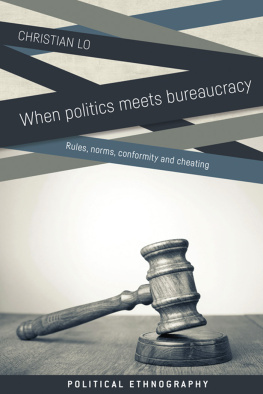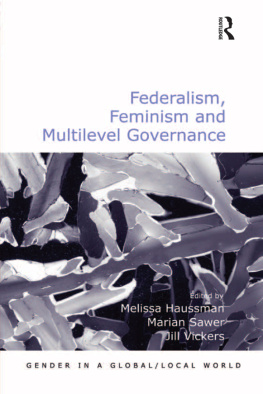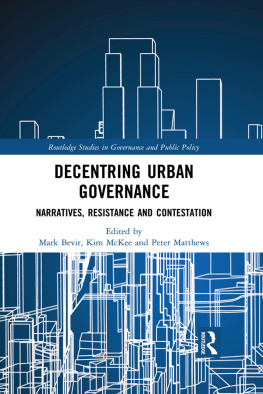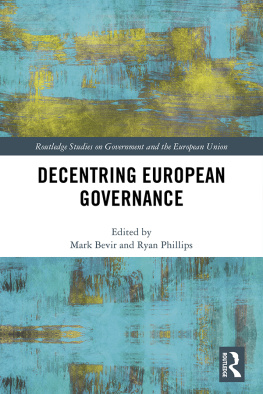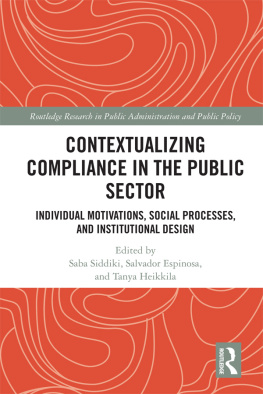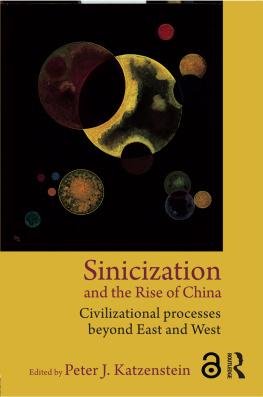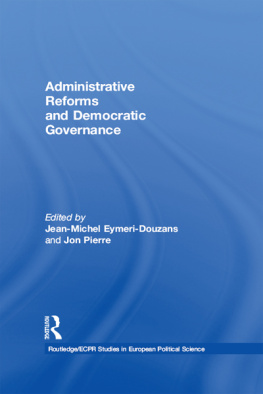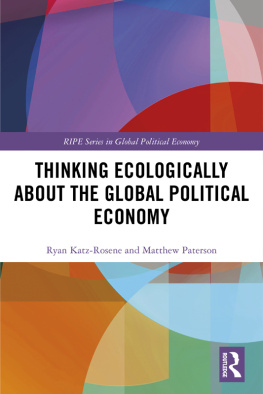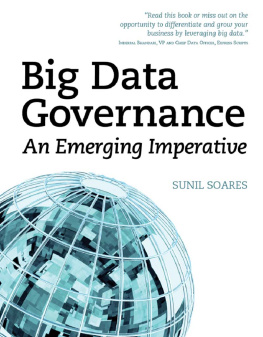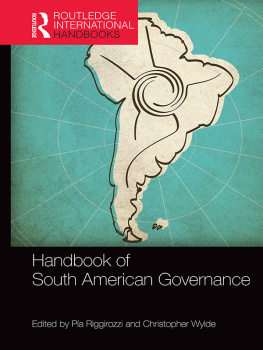POLITICAL ETHNOGRAPHY
The Political Ethnography series is an outlet for ethnographic research into politics and administration and builds an interdisciplinary platform for a readership interested in qualitative research in this area. Such work cuts across traditional scholarly boundaries of political science, public administration, anthropology, social policy studies and development studies and facilitates a conversation across disciplines. It will provoke a re-thinking of how researchers can understand politics and administration.
Previously published titles
The absurdity of bureaucracy: How implementation worksNina Holm Vohnsen
Politics of waiting: Workfare, post-Soviet austerity and the ethics of freedomLiene Ozolia
Diplomacy and lobbying during Turkey's Europeanisation: The private life of politicsBilge Firat
Dramas at Westminster: Select committees and the quest for accountabilityMarc Geddes
Copyright Christian Lo 2021
The right of Christian Lo to be identified as the author of this work has been asserted by him in accordance with the Copyright, Designs and Patents Act 1988.
Published by Manchester University Press
Altrincham Street, Manchester M1 7JA
www.manchesteruniversitypress.co.uk
British Library Cataloguing-in-Publication Data
A catalogue record for this book is available from the British Library
ISBN978 1 5261 3668 8hardback
First published 2021
The publisher has no responsibility for the persistence or accuracy of URLs for any external or third-party internet websites referred to in this book, and does not guarantee that any content on such websites is, or will remain, accurate or appropriate.
Cover image: Shutterstock
Cover design: riverdesignbooks.com
Typeset
by New Best-set Typesetters Ltd
Ethnography reaches the parts of politics that other methods cannot reach. It captures the lived experience of politics; the everyday life of political elites and street-level bureaucrats. It identifies what we fail to learn, and what we fail to understand, from other approaches. Specifically:
1.It is a source of data not available elsewhere.
2.It is often the only way to identify key individuals and core processes.
3.It identifies voices all too often ignored.
4.By disaggregating organizations, it leads to an understanding of the black box or the internal processes of groups and organizations.
5.It recovers the beliefs and practices of actors.
6.It gets below and behind the surface of official accounts by providing texture, depth and nuance, so our stories have richness as well as context.
7.It lets interviewees explain the meaning of their actions, providing an authenticity that can come only from the main characters involved in the story.
8.It allows us to frame (and reframe, and reframe) research questions in a way that recognizes our understandings about how things work around here evolve during the fieldwork.
9.It admits of surprises of moments of epiphany, serendipity and happenstance that can open new research agendas.
10.It helps us to see and analyze the symbolic, performative aspects of political action.
Despite this distinct and distinctive contribution, ethnography's potential is realized rarely in political science and related disciplines. It is considered an endangered species or at best a minority sport. This series seeks to promote the use of ethnography in political science, public administration and public policy.
The series has two key aims:
1.To establish an outlet for ethnographic research into politics, public administration and public policy.
2.To build an interdisciplinary platform for a readership interested in qualitative research into politics and administration. We expect such work to cut across the traditional scholarly boundaries of political science, public administration, anthropology, organization studies, social policy and development studies.
Christian Lo's book obeys a key injunction of this series that small facts should speak to big issues. The small facts are cases of policy-making in two Norwegian municipalities. The big issue is the transition from government to governance; from policies determined, top-down, by the state to policies that emerge from the interactions of networks of organizations drawn from the public, private and voluntary sectors. Lo's ethnographic account of policy criticizes this distinction, arguing that the hierarchal relations of government and the networked relations of governance are inextricably intertwined during policy processes.
Lo employs a multi-sited ethnographic fieldwork strategy involving two months of participant observation (one month in each municipality). He had his own office at each municipality and observed the elite administrative and political personnel in their everyday municipal lives. He conducted twenty lengthy interviews with key informants. He followed the elite to external meetings and events with other governments and private organizations and to public meetings. He collected many documents including the minutes of meetings, case proceedings and policy documents. He bases his stories on the three sources of observed practice, talk (both formal interviews and informal conversation) and considered writing.
) to demonstrate the continuing relevance of his analysis of politics as a game in which there are alternative rulebooks guiding the game. Rules and procedures are important, but they are not fixed. They are subject to constant interpretation, negotiation and, occasionally, outright cheating. As a good ethnographer, Lo unearths the several organizations in one by providing texture, depth and nuance.
Professor R. A. W. Rhodes
Southampton, March 2020
Among the many people who have contributed to the study presented in this book, I first want to express my gratitude to all of my informants in the two municipal organizations that allowed me to conduct fieldwork at their place of work. In both organizations, I was met with enormous hospitality, openness and willingness to satisfy with detailed and time-consuming answers even the strangest questions from a tiresome researcher. I thank you for making this book possible.
I am eternally grateful to my former supervisors Asbjrn Riseland and Halvard Vike. Their always insightful and always inspirational advice has been essential in developing the perspectives presented in this book.
At various stages, a great number of people have contributed to the writing of this book by reviewing various drafts and delivering critical feedback: Jonathan S. Davies, Torill Nyseth, Kjartan Koch Mikalsen, Ole Johan Andersen, Nils Aarsther, Marte F. Giskedegrd, Johans T. Sandvin, Terje Olsen, Cecilie Hj Anvik, Ragnhild H. Waldahl, Esben S. B. Olesen, Vegard Pedersen, Eva Srensen, Frode Bjrgo, Johanne H. Kobberstad, Janne P. Breimo, Linn-Marie L. Pedersen, Mikel D. Cainzos, Astri Dankertsen, Stian Bragtvedt and Jan Erling Klausen. Thank you for leaving your marks.
I would like to thank the series editor, R. A. W. Rhodes, for encouraging the development of this book and for providing crucial feedback and guidance to this unexperienced author. I am also grateful to the entire team at Manchester University Press that have enabled this journey and provided excellent support along the way.

